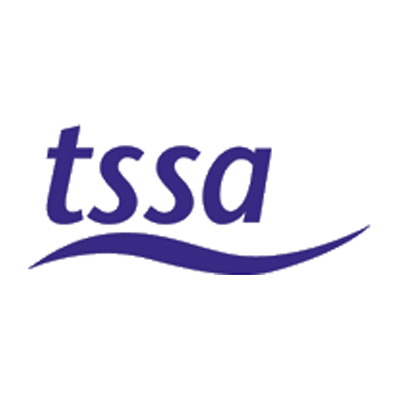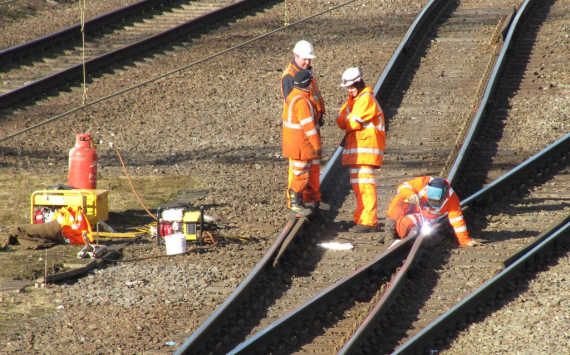Description
The Transport Salaried Staffs' Association (TSSA) is a trade union for workers in the transport and travel industries in the United Kingdom and Ireland. Its head office is in London, and it has regional offices in Bristol, Derby, Dublin, Manchester, York and Glasgow.
TSSA has approximately 17,856 members in the UK and Ireland. While principally a union for people in the railway industry, the effect of the nationalisation and subsequent privatisations following the Second World War has meant that it has members working for railway companies, shipping companies, bus companies, travel agencies, airlines, call centres, and IT companies.
History
The union was founded in Sheffield in 1897 as the National Association of General Railway Clerks, although it was a narrow decision to found the union. The railway companies were strongly opposed to trade unions and two earlier attempts to form a clerks' union had failed and, discouraged, the organisers decided by a majority of only one vote to try a third time - this time successfully. In 1899 it was renamed the Railway Clerks' Association (RCA), and in 1951 it adopted its current name.
The early years were difficult. The third General Secretary, John Stopford-Challener, shot himself in Paris's Bois de Boulogne in 1906; it was only after his suicide that it was discovered that he had absconded with the union's money. After this came the era of A.G. Walkden, who as General Secretary for 30 years led the union to the peak of its influence; the head office in London, built in the early 1960s, was named after him. The railway companies refused to recognise the trade unions until after the strike of 1919, but after that time membership rose steadily, to a peak of some 91,500 in the early 1950s. The subsequent closure of uneconomic railway lines, the Beeching axe, and especially the computerisation of railway offices led to large scale reductions in the eligible membership. Membership was around 75,000 in 1970, 71,000 in 1980, and 39,000 in 1990. There was a rapid loss of around 25% of its membership in the mid to late 1990s because the grades of staff covered by the union were the ones hardest hit when British Rail was broken up from 1994 onwards; however the Executive Committee adopted a policy of seeking to vigorously recruit additional members particularly in those areas such as travel agencies which had not been the principal focus of the union in the past. This has led to more stable membership figures, including a small increase at the turn of the century.
The union has been involved in at least one London Underground strike, between 6 and 7 September 2010.
In July 2015, TSSA endorsed Jeremy Corbyn's campaign in the Labour Party leadership election. TSSA National Political Officer, Sam Tarry spearheaded Corbyn's second leadership campaign.
In 2018, preparatory work for the HS2 railway meant that the TSSA had to vacate its head office since the 1960s, at Walkden House in Melton Street, adjacent to London's Euston Station, and moved to a new head office in Devonshire Square, near Liverpool Street Station.
In September 2021, TSSA announced that is talks in starting merging the union with the North American Boilermakers Union with the viewpoint of completing the merger by 1 July 2022. In January 2022, union representatives voted by 88% to agree to the merger, the union would start to ballot members from 8 February 2022.
In early 2022, the union was granted an injunction on an employee who has accused Manuel Cortes, the general secretary of the TSSA of sexual harassment and of bullying by senior staff members. Cortes claims that he has no memory of the evening due to excessive drinking. The injunction forbids the woman from talking about the alleged harassment and bullying. Later on that year an inquiry was opened into the union, led by Helena Kennedy KC, to examine allegations of sexual harassment and bullying towards women within the union with Manuel Cortes resigning with immediate effect a month later. The Kennedy inquiry would report in February 2023 that the union had seen a culture of sexual harassment and sexual assault over the course of several years along with coercive behaviour. Kennedy called for several senior leaders of the union to resign and that external auditors should be brought in to examine the union's finances.






















